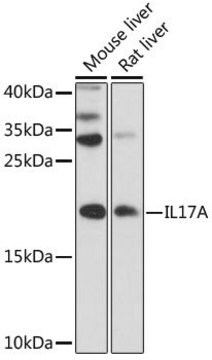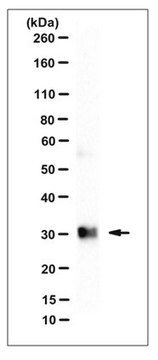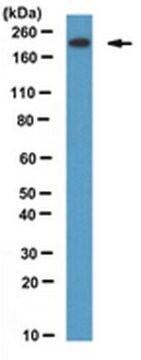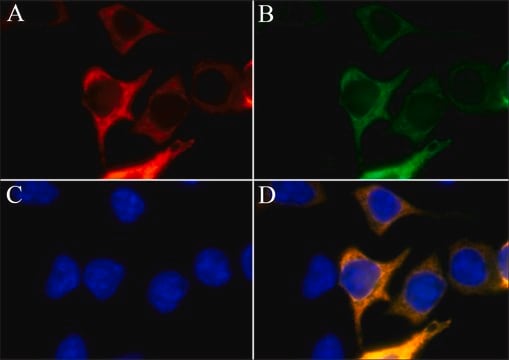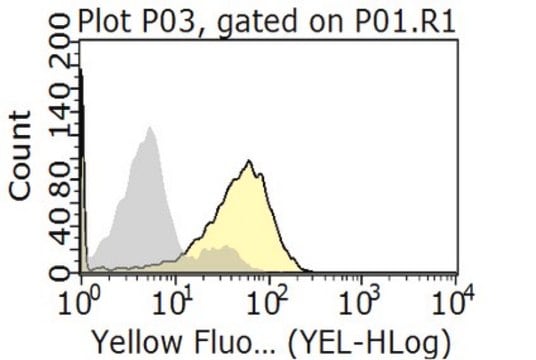MABS274
Anti-LRP6, clone A59, Ectodomain Antibody
clone A59, from mouse
Synonym(s):
Low-density lipoprotein receptor-related protein 6, LRP-6
About This Item
Recommended Products
biological source
mouse
Quality Level
antibody form
purified immunoglobulin
antibody product type
primary antibodies
clone
A59, monoclonal
species reactivity
human
technique(s)
flow cytometry: suitable
immunocytochemistry: suitable
immunoprecipitation (IP): suitable
isotype
IgG1κ
NCBI accession no.
UniProt accession no.
shipped in
wet ice
target post-translational modification
unmodified
Gene Information
human ... LRP6(4040)
Related Categories
General description
Immunogen
Application
Immunoprecipitation Analysis: A representative lot from an independent laboratory immunoprecipitated LRP6, Ectodomain from Wnt3a-treated HEK293T cell lysate (Yasui, N., et al. (2010). J Immunol Methods. 352(1-2):153-160.).
Immunocytochemistry Analysis: A representative lot from an independent laboratory detected LRP6, Ectodomain in HeLa S3 cells (Yasui, N., et al. (2010). J Immunol Methods. 352(1-2):153-160.).
Signaling
Insulin/Energy Signaling
Quality
Flow Cytometry Analysis: 2 µg of this antibody detected LRP6, Ectodomain in 1X10E6 HEK293 cells.
Target description
Physical form
Storage and Stability
Other Notes
Disclaimer
Not finding the right product?
Try our Product Selector Tool.
Storage Class Code
12 - Non Combustible Liquids
WGK
WGK 1
Flash Point(F)
Not applicable
Flash Point(C)
Not applicable
Certificates of Analysis (COA)
Search for Certificates of Analysis (COA) by entering the products Lot/Batch Number. Lot and Batch Numbers can be found on a product’s label following the words ‘Lot’ or ‘Batch’.
Already Own This Product?
Find documentation for the products that you have recently purchased in the Document Library.
Our team of scientists has experience in all areas of research including Life Science, Material Science, Chemical Synthesis, Chromatography, Analytical and many others.
Contact Technical Service